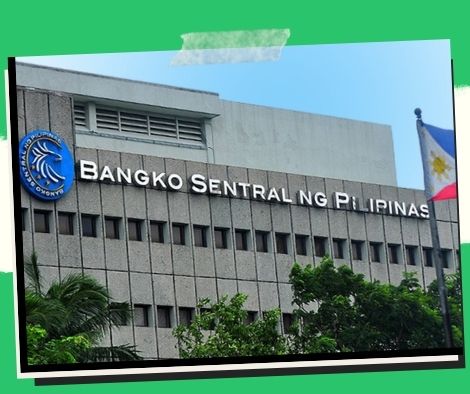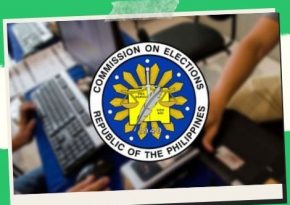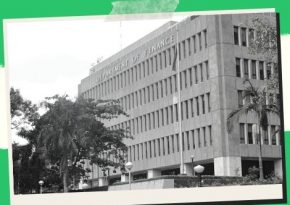
BSP redoubles efforts to have the bank secrecy law relaxed
The Philippines would have a better chance of being removed from the Financial Action Task Force (FATFgray )’s list sooner if the bank secrecy rule were to be partially lifted, according to the Bangko Sentral ng Pilipinas.
Elmore Capule, senior assistant governor and general counsel for the BSP, testified before the Senate committee on banks, financial institutions, and currencies that the country’s failure to effectively implement and enforce anti-money laundering/combating the financing of terrorism laws, rules, and regulations was cited by the international dirty money watchdog.
According to Capule, this involves giving competent authorities direct access to information kept by banks, such as data on covered people’s beneficial ownership.
According to Capule, only the Philippines now has regulations governing bank deposit confidentiality that limit prudential oversight by limiting the scope of data and documents that the BSP can examine.
Capule said that under Presidential Decree 1792, the BSP received permission from the Monetary Board in 1981 to investigate or analyze bank accounts.
However, when Republic Act (RA) 7653, often known as the BSP Charter, was passed in 1993, the authority was abolished.
“If we can also address that issue, it will significantly improve our prospects of being removed from the FATF’s gray list quickly. So in essence, that is what the BSP’s initial recommendation is: a small modification to the bank secrecy rule, according to Capule.
The Philippines has made a high-level political commitment to cooperate with the FATF and Asia Pacific Group on Money Laundering after its re-inclusion in the gray list in June 2021. (APG).
The nation mentioned the passing of RA 11479, the Anti-Terrorism Act of 2020, and RA 11521, which amended the AMLA, as well as the publication of the associated rules and regulations.
After its third follow-up report in February of last year, the FATF kept the Philippines on its gray list despite several re-ratings, emphasizing the need for the nation to further strengthen its action plan to address strategic shortcomings in its regimes to combat money laundering, terrorist financing, and proliferation financing.
The Anti-Money Laundering Council (AMLC) is convinced that the Philippines will be taken off the gray list by January 2023 or earlier because of its commitment to quickly address any strategic shortcomings that have been found within predetermined timeframes.
Republic Act 1405, also known as An Act Prohibiting Disclosure of or Inquiry Into, Deposits with Any Banking Institution, is being modified in a restricted number of ways, according to Capule (Bank Secrecy Law).
Capule claims that the World Bank and the International Monetary Fund (IMF) have recognized that the country’s bank secrecy restrictions limit the BSP’s capacity to carry out efficient supervision.
Capule clarified that the deposit accounts of stockholders, owners, directors, trustees, officials, or employees of a business that is under the BSP’s supervision are the only ones covered by House Bill 8991’s proposed changes to the Bank Secrecy Law.
In the course of its examination into closed banks, Capule stated that the Monetary Board would decide if there is probable cause to believe that fraud, a severe irregularity, or unlawful action has been or is being perpetrated.
Capule stated, “In essence, what we are calling for is a very, very limited relaxation of the bank secrecy restrictions.
Capule stated that safeguards against abuses would be included in the proposed revisions.
BSP Governor Felipe Medalla has stated that the central bank is investigating potential changes to the Bank Secrecy Law that would permit a thorough investigation of bank accounts with questionable financial transactions.
Medalla explained to the Financial Executives Institute of the Philippines’ members that the changes under consideration will improve the BSP’s ability to safeguard depositors against losses brought on by fraud and other illegal activity.
The Bankers Association of the Philippines (BAP), the Digital Payments Bill, and the SIM Card Registration Bill that was vetoed by the previous president Rodrigo Duterte are all being promoted by the BSP for passage during the 19th Congress.
Save/Share this story with QR CODE
Disclaimer
This article is for informational purposes only and does not constitute endorsement of any specific technologies or methodologies and financial advice or endorsement of any specific products or services.
 Need to get in touch?
Need to get in touch?

We appreciate your reading. 
1.) 

Your DONATION will be used to fund and maintain NEXTGENDAY.com
Subscribers in the Philippines can make donations to mobile number 0917 906 3081, thru GCash.
3.) 
4.) 
AFFILIATE PARTNERS

World Class Nutritional Supplements - Buy Highest Quality Products, Purest Most Healthy Ingredients, Direct to your Door! Up to 90% OFF.
Join LiveGood Today - A company created to satisfy the world's most demanding leaders and entrepreneurs, with the best compensation plan today.

 Business, Finance & Technology
Business, Finance & Technology




